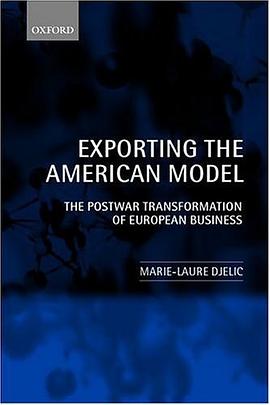

具體描述
Exporting the American Model places in historical perspective the apparently universal appeal of the model of corporate capitalism. Marie-Laure Djelic explores the patterns of evolution that have characterized Western European business systems in the postwar period. She identifies two seemingly conflicting trends - one leading to convergence, the other perpetuating national differentiation. To account for this apparent contradiction, she first documents the large-scale transfer to Western Eruope of a model of corporate capitalism with clear American origins, showing the key role in the process of the Marshall Plan administration. Focusing on France, West Germany, and Italy, she then looks at the specific conditions in which the transfer took place in each case. One key finding is that this transfer had varying degrees of success in each of the three countries and that the American model was partially adapted to national conditions when it was not strongly resisted. The book underscores the socially constructed and historically contingent nature of structural arrangements shaping conditions of industiral production in capitalist countries today. National systems of industrial production are not given or necessary; they are constructed through time by economic but also political actors with particular goals and resources, often in direct confrontation with other intersts. This shaping is embedded within specific national institutional contexts but it also takes place in unique geopolitical conditions. Thus foreign actors, it is argued, can have in certain circumstances a significant impact on the process of definition of a given national system of industial production.
著者簡介
圖書目錄
讀後感
評分
評分
評分
評分
用戶評價
相關圖書
本站所有內容均為互聯網搜索引擎提供的公開搜索信息,本站不存儲任何數據與內容,任何內容與數據均與本站無關,如有需要請聯繫相關搜索引擎包括但不限於百度,google,bing,sogou 等
© 2025 book.quotespace.org All Rights Reserved. 小美書屋 版权所有




















